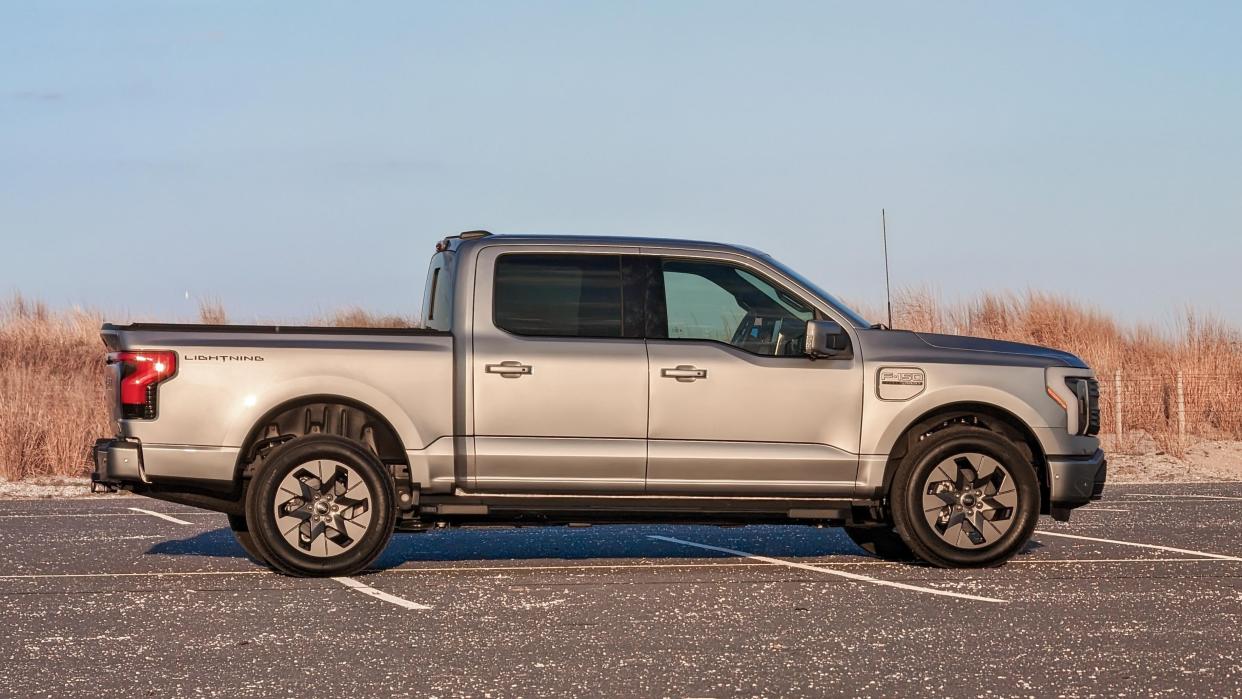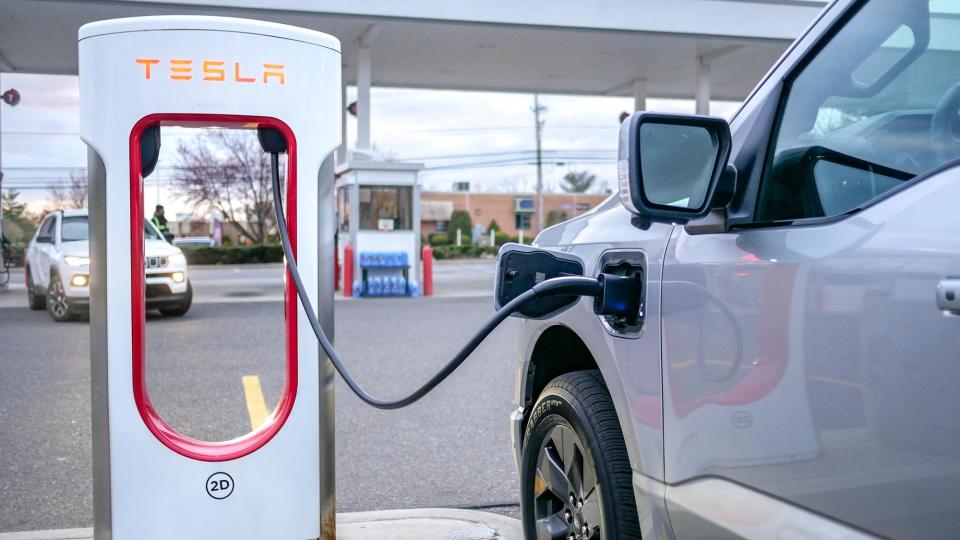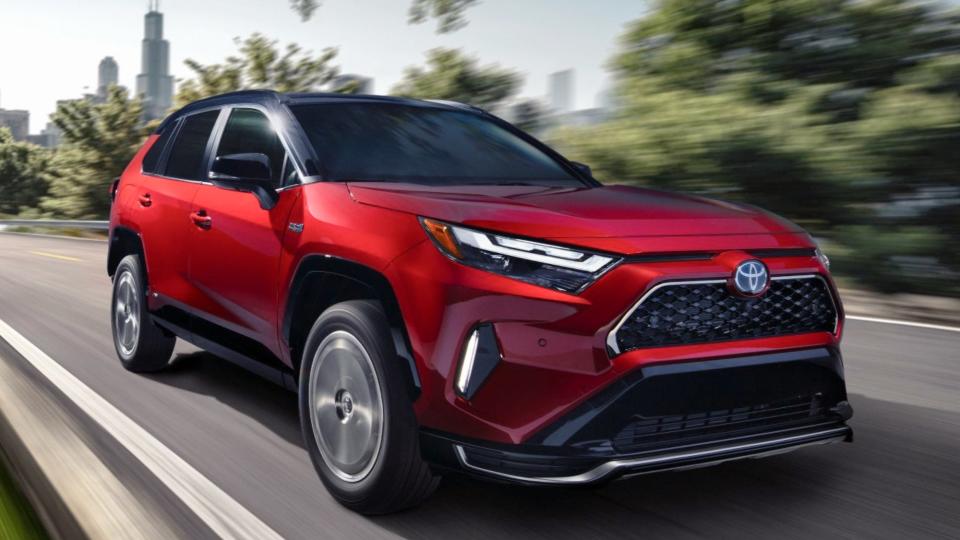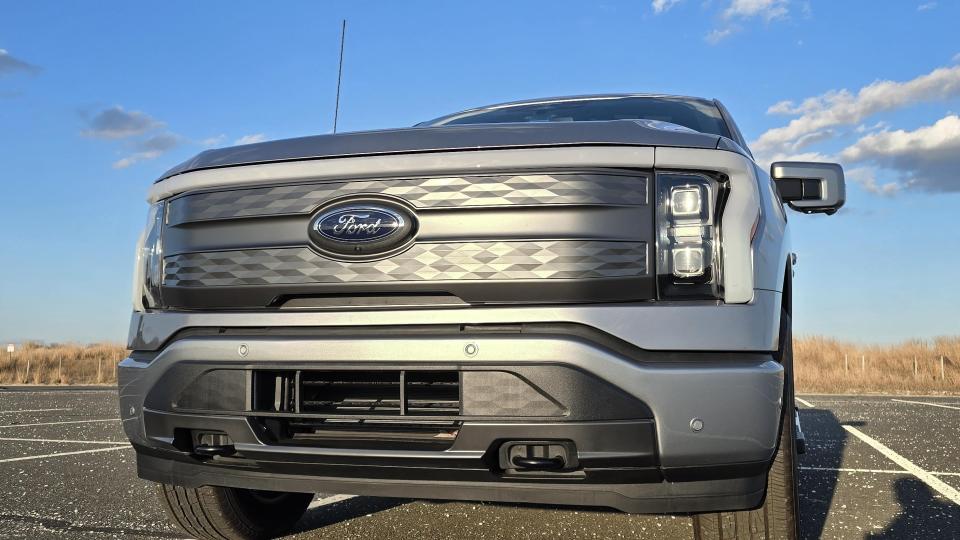Interest in EV trucks like F150 Lightning is plummeting — here's why

I never once imagined ever being enticed by a pickup truck, but that all changed when I test drove the Ford F150 Lightning over a weekend. Just in that time alone, I was convinced about many things regarding electric vehicles, even though I had challenges filling up at a Tesla Supercharger station. Yet, it looks like I’m in the minority because the latest reports indicate that demand for electric trucks like the F150 Lightning have waned.
On one hand, I’m not terribly surprised by this, but Ford took this gamble with its most popular pickup truck model. It was just days ago when Ford announced layoffs for 1,400 of its workers in its factory in Michigan that manufactures the F150 Lightning, which only compounds the year-over-year decrease in sales posted for Q4 2023.
Not only have sales been softer than expected, but it appears as though inventory is also beginning to pile up at Ford dealerships — again, an indication of how interest is plummeting around EV trucks. Even Tesla is not immune to the downturn, with the company reporting the first Tesla delivery decline in nearly four years. So what's going on?
Just downright expensive

One of the biggest reasons for the slowed interest is because EV trucks are obnoxiously expensive, including the base model of the Ford F150 Lightning. That one starts at $49,995, while a top-of-the-line F150 Lightning Platinum will set you back $92,000 at the very least. If you think that’s outrageous, there’s also the F150 Platinum Black Edition that’s being offered in a limited batch of 2,000 models for $97,000 starting.
It’s not just a Ford problem either, as other EV pickup trucks are priced just as much — including the Rivian R1T that starts at $69,900 and Tesla’s Cybertruck at $57,390. Those prices are for their respective base models, with top-of-the-line models getting close to that six figure mark.
Car shopping site Edmunds released a study that found the desired price range for an EV is $30,000 to $40,000 with those surveyed. This range isn’t all that impractical, given how there are more all-electric sedans and small SUVs in this range than ever before. Take the Tesla Model 3 and Model Y, which both start under $40,000 after rebates.
To be fair, though, Tesla has cut prices and the company's deliveries have still declined by 8.5% during the first quarter. The company says this is partly due to preparing one of its factories to handle an updated Model 3 and shutdowns at its Berlin plant. But there still seems to be softer demand and also increased competition from Chinese automakers like BYD.
Competition from SUVs and crossovers

At the same time, EV truck demand isn’t as high as it should be because of the competition from smaller SUVs and crossovers. Edmunds’ study found that 10% of those surveyed were interested in an electric pickup truck, while SUVS and crossovers ranked higher with 43% and 42%, respectively.
It also helps when many of these SUVs and crossovers have tens of thousands in savings over an EV pickup truck like the Ford F150 Lightning. In exploring EVs more, I’ve rediscovered another type of vehicle that could be taking away interest from pricey EV trucks. During the New York Auto Show 2024, I was pleasantly surprised by the Toyota RAV4 Prime — a plug-in hybrid SUV that looks and functions like its gas-powered sibling, but has an all-electric engine that’s good for up to 42 miles of range.
Consumers who are apprehensive about committing to a fully electric vehicle could be swayed by plug-in hybrids like the RAV4 Prime, mainly because they don’t have the same constraints of ‘filling up’ on long road trips. At the same time, they can experience the savings of all-electric power — despite having much less range. For drivers expecting to use it on short trips and commutes, these plug-in hybrids have value. To its credit, Ford does offer a plug-in hybrid in the Ford Escape.
Ford should’ve started small

Pricing has been a roadblock for many potential EV buyers, even though there are generous federal and state rebates that discount them by even more. Instead of Ford going big and gambling on an F150 Lightning, I think it should’ve gone after a smaller pickup truck that inherently would’ve been cheaper as well.
The Ford Maverick was the only truck that had positive sales during Q4 2023, a 22% increase that totaled 22,628 units sold. Given the consumer interest in smaller SUVs and crossovers, Ford could’ve drawn wider appeal by making an all-electric version of the Maverick. The base version starts at around $24,000, which looks much more attractive on paper over the $50,000+ cost of most EV trucks.
Edmunds reports that the average EV sale price came to about $61,700 last year, roughly $14,250 more than the price paid for nonelectric vehicles. Even if an all-electric Maverick came out to around $40,000, that’s still a significant savings over what you’d pay for a Ford F150 Lightning.
I really hope that there’s still time to turn things around because unlike their gas-powered counterparts, all-electric pickups like the F150 Lightning have nearly the same acceleration and range as your average sedan — while offering the utility of its towing capacity and flatbed.
I understand that needs will differ from person to person, but smaller EV trucks could just have enough of an appeal to rival these other all-electric SUVs and crossovers.

